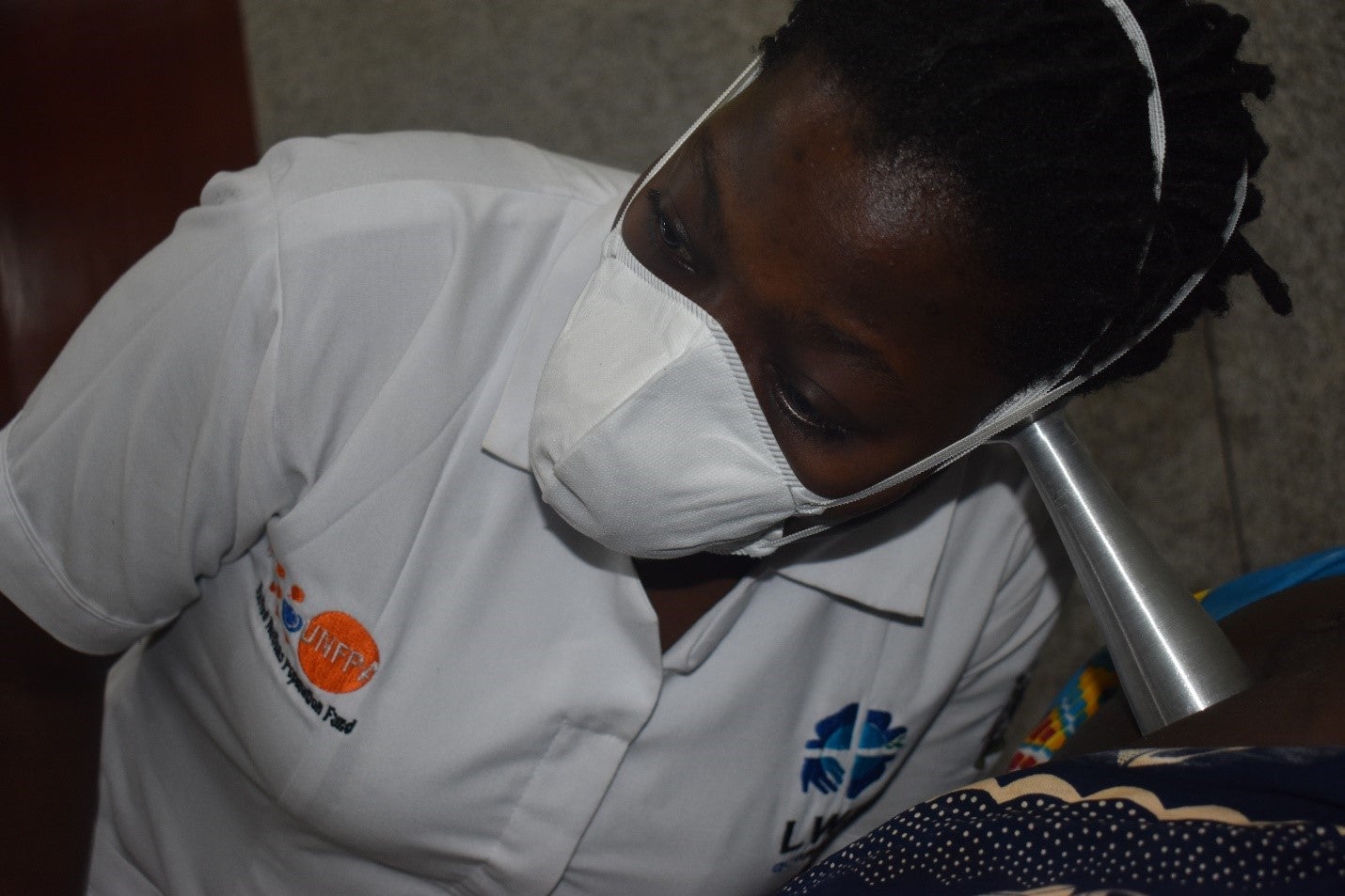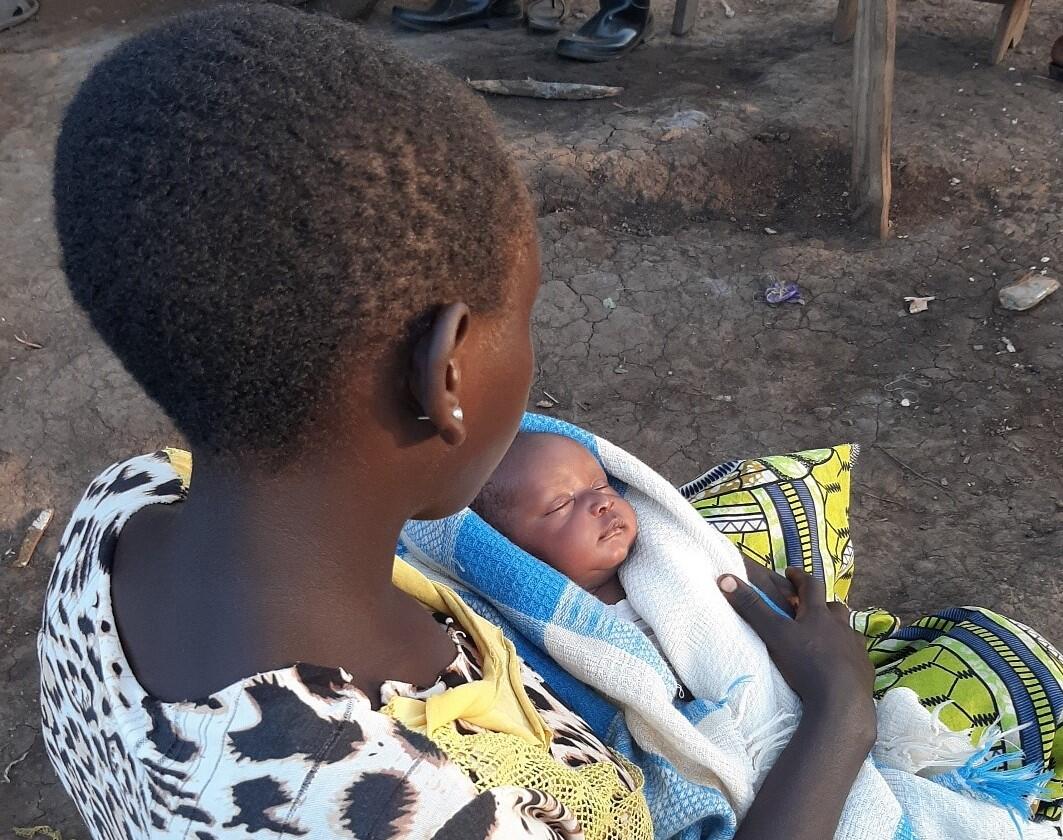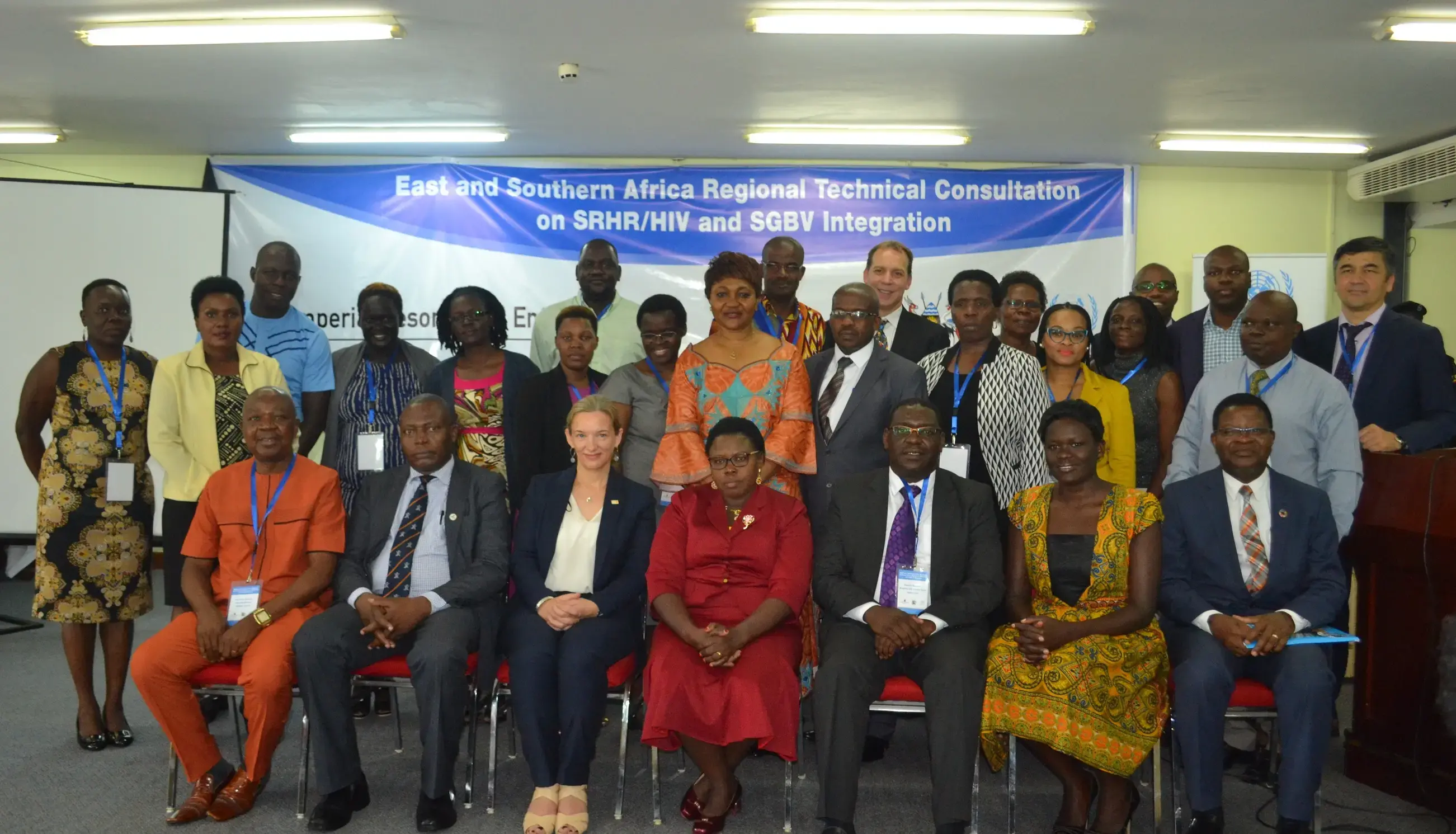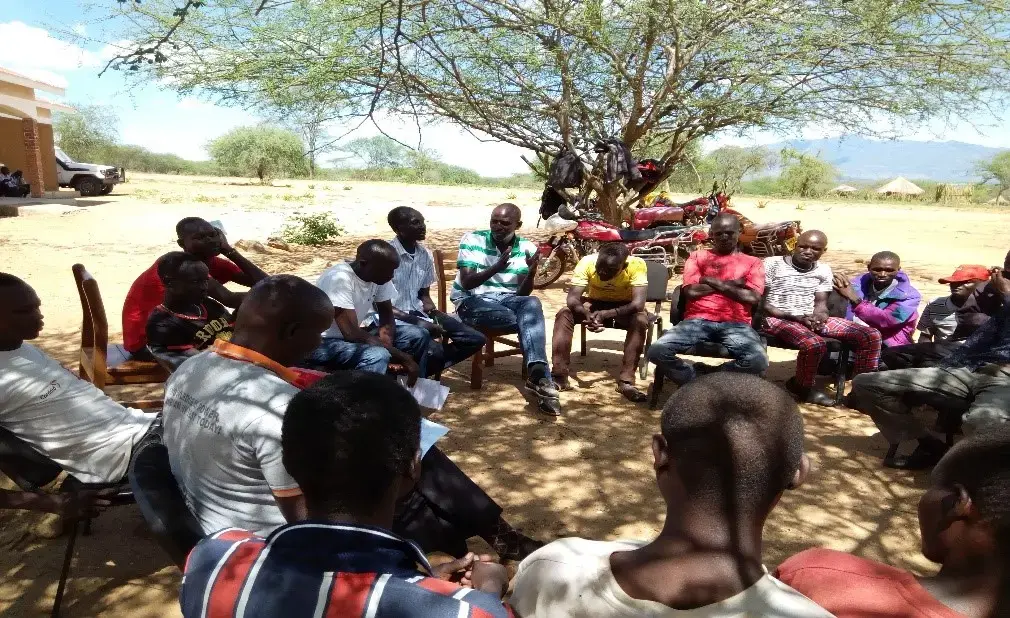KYANGWALI refugee Settlement, Kikuube: Ordinarily at the age of 13, a girl is still considered a child, enjoying adolescence. But for RT, it became motherhood in childhood when she became pregnant at a tender age.
RT, who lives in Kavuule village, in Kyangwali refugee settlement says she started laboring about 6:00pm one evening in April.
“From the first time I felt a contraction, I couldn’t move,” she narrates. She needed to be rushed to the health facility immediately.
Teenage pregnancy often comes with financial strain on the family and this was the case for RT and her family. The harsh terrain and steep hills surrounding her home posed another risk for RT if she did not get to the health facility and receive skilled care on time.
Luckily for RT, the issue of transportation was not going to stand in the way of her getting to a health facility on time. During a routine pregnancy mapping exercise by UNFPA implementing partner Lutheran World Federation (LWF), the teenager had been identified and given a pregnancy mapping card that had the contact of the ambulance driver. Once labour set in, RT’s mother quickly called for help for her daughter.

pregnant mother during antenatal services at Kyangwali HC IV.
PHOTO: UNFPA/Desmind Ssekweya
The ambulance driver responded swiftly, and drove RT to the nearest health facility, Maratatu B Health Centre III. However, on reaching the facility and assessment by the midwife, it was recommended that due to her age, RT could not be handled there; she needed to be referred to Kyangwali HC IV a facility with emergency obstetric care services.
At Kyangwali HC IV, RT was received by a Sr. Sumaiya Nakamatte a midwife, who had been trained with support from UNFPA.
Noting her age, midwife Sumaiya advised delivery by cesarean section. RT delivered a healthy baby boy.
In Uganda, teenage pregnancy remains a great challenge with one in four girls being pregnant or delivered their first baby by the age of 19. Humanitarian crises heighten adolescent girls’ vulnerability to gender-based violence and teenage pregnancy. Yet, many teenage mothers do not have access to adequate reproductive health care. Complicated births also often require emergency obstetric care.
With support from UNFPA, LWF continues to implement programmes to protect the sexual reproductive health rights of refugees even as the COVID-19 pandemic aggravates the lack of access to these much needed services. The programme interventions include provision of free ambulance services to ensure timely access to skilled delivery service, and pregnancy mapping where expectant mothers in the community are identified and tracked to ensure they receive care during pregnancy and childbirth. LWF also operates youth safe spaces which serve as hubs for information on sexual and reproductive health and group therapy for teenage mothers to help them cope with the challenges that come with being a young parent.
- Story by Desmond Ssekyewa





